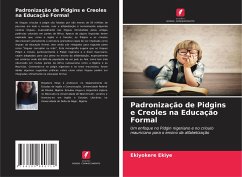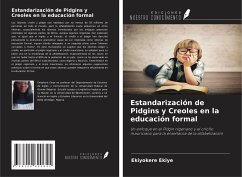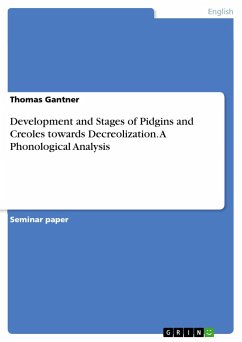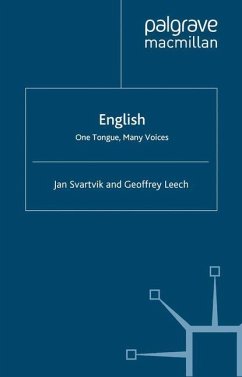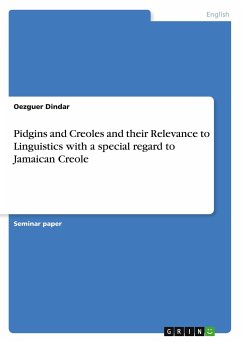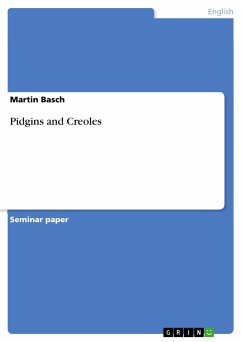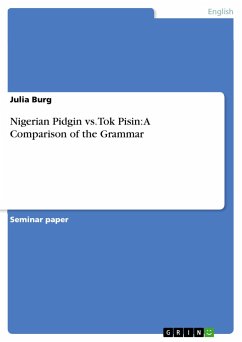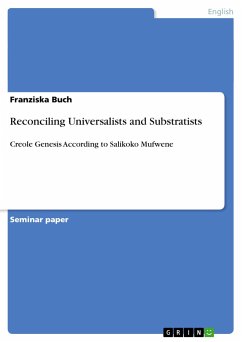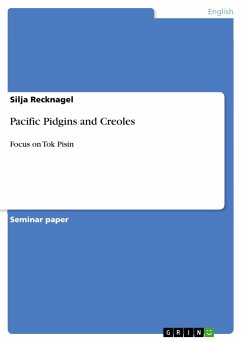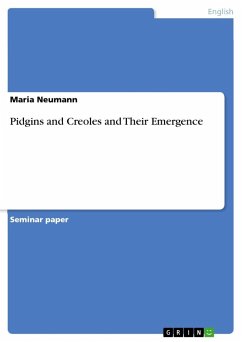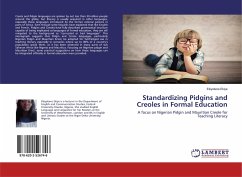
Standardizing Pidgins and Creoles in Formal Education
A focus on Nigerian Pidgin and Mauritian Creole for Teaching Literacy
Versandkostenfrei!
Versandfertig in 6-10 Tagen
27,99 €
inkl. MwSt.

PAYBACK Punkte
14 °P sammeln!
Creole and Pidgin languages are spoken by not less than 50 million people around the globe, but literacy is usually acquired in other languages, especially those languages introduced by the former colonial powers in parts of Africa. Even though some linguists have explained that like English and French, Pidgins and Creoles have fully described grammatical structure capable of being implicated as languages of formal education, they are still relegated to the background as "corrupted or bad languages". This monograph suggests that Pidgin and Creole languages, particularly Nigerian Pidgin and Mau...
Creole and Pidgin languages are spoken by not less than 50 million people around the globe, but literacy is usually acquired in other languages, especially those languages introduced by the former colonial powers in parts of Africa. Even though some linguists have explained that like English and French, Pidgins and Creoles have fully described grammatical structure capable of being implicated as languages of formal education, they are still relegated to the background as "corrupted or bad languages". This monograph suggests that Pidgin and Creole languages, particularly Nigerian Pidgin and Mauritian Kreol, be adopted for full-fledged use in teaching literacy especially in scenarios where up to 80% of a country's population speak them, as it has been observed in many parts of sub Saharan Africa like Nigeria and Mauritius. Focusing on Nigerian pidgin and Mauritian Kreol, some practical suggestions on how these languages can be integrated officially in formal education were provided.



